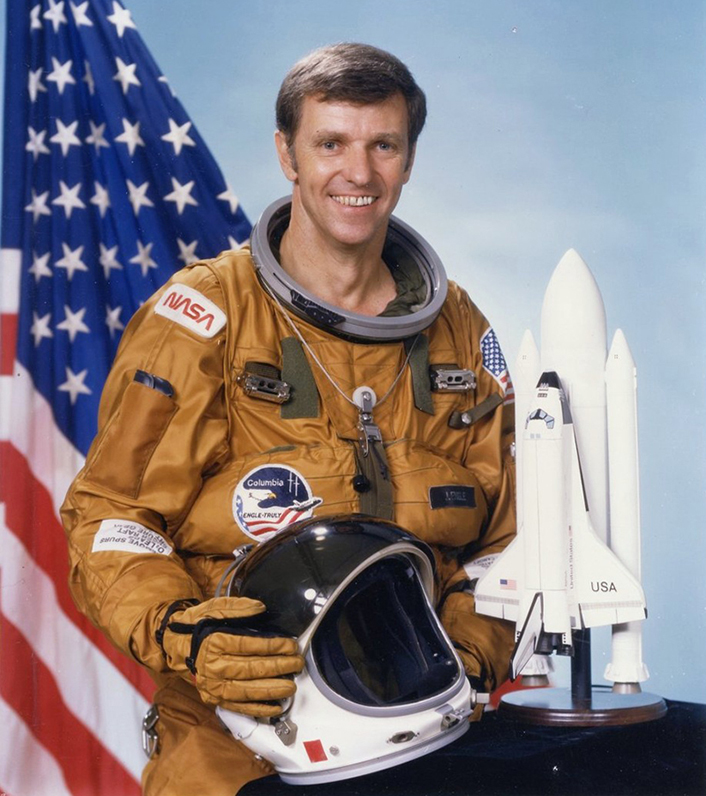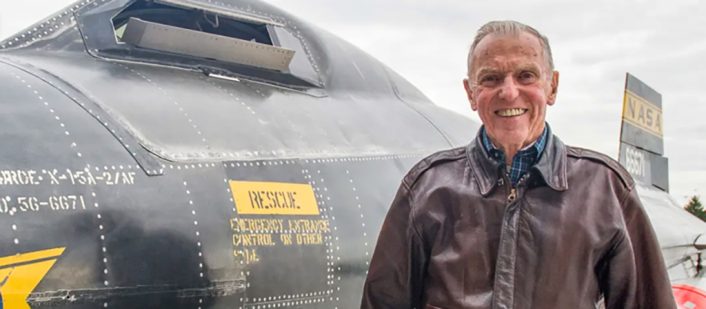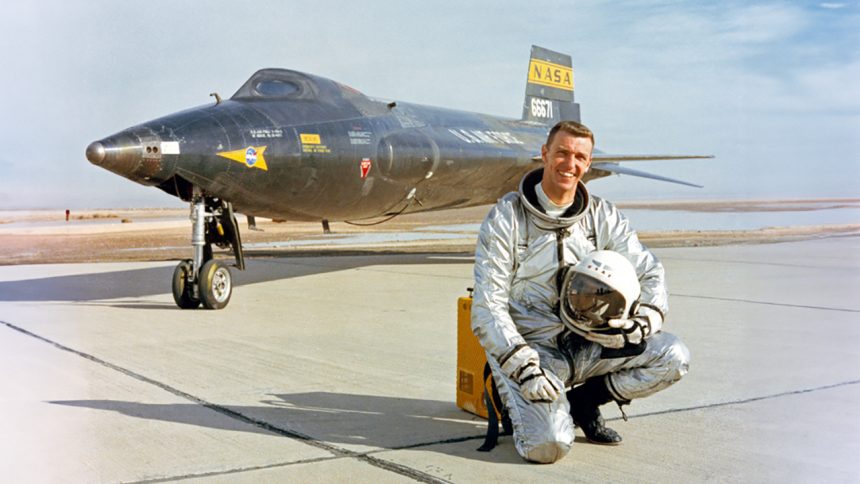Joe Engle’s Remarkable Career Bridged Gap Between Air and Space, Broke Records.
Astronaut, X-15 test pilot and space shuttle pilot Joe Engle has died at home in Houston, Texas. He was 91. Engle passed peacefully surrounded by his family according to a NASA press release. Joe Engle is the final pilot to die of the 12 men who flew the X-15 rocket-powered, hypersonic test aircraft.
Joe Engle’s aviation and space exploration career was remarkable in part because it spanned the transition from atmospheric flight to space flight, including participation in the Apollo lunar missions and flying atmospheric test aircraft into space and landing on earth in the X-15, a precursor to the operational space shuttle program. Engle helped develop reusable spacecraft and actively participated in their operational deployment.
Born on Aug. 26, 1932, Engle was a native of Chapman, Kansas. He grew up from modest, traditional origins, joining the Boy Scouts and later attending the University of Kansas where he earned a Bachelor of Science degree in aeronautical engineering.
Joe Engle learned to fly from a colleague named Henry Dittmer while working at Cessna Aircraft. Engle entered formal flight training with the U.S. Air Force in 1957 and graduated the following year. His first operational Air Force posting was with the 474th Fighter Squadron, a unit that had transitioned from the early, subsonic F-86 Sabre to the F-100 Super Sabre, the Air Force’s first operational supersonic fighter. He later flew with the 309th fighter Squadron, a unit that operated the straight-wing, subsonic F-84E Thunderjet, an early multi-role jet combat aircraft used in the close air support mission during the Korean conflict.
Engle was recommended for test pilot school by legendary test pilot Chuck Yeager. After graduating from Air Force Test Pilot School in 1961, Engle continued his advanced pilot training and became a member of the first crews to begin transition training from atmospheric to space flight when he joined the third class of the Aerospace Research Pilot School.
Engle entered the North American X-15 flight test program in 1963.
As a member of the vaunted X-15 pilot fraternity that shattered manned flight altitude and speed records with a total of 199 flights between 1959 and 1968, Engle flew the X-15 a total of 16 times between 1963 and 1966. On June 29, 1965, Engle flew the X-15 to an altitude of more than 50 miles, qualifying him for Air Force Astronaut wings, one of only 8 pilots to earn their astronaut wings in the X-15.
Following his X-15 flight test experience, Joe Engle was selected for astronaut training with NASA in 1966. He was selected as support crew on the Apollo 10 mission and served as backup pilot for the lunar module on Apollo 17. Because the lunar exploration missions had a strong emphasis on learning the geology of the moon, Engle was not selected as an operational lunar module pilot but replaced by an astronaut with an academic background in geology.
True to his origins as an atmospheric test pilot, Engle then began flight testing of the space shuttle during approach and landing flight tests from June to October, 1977. These remarkable flights originated from the back of a Boeing 747 launch aircraft that carried the space shuttle to its 25,000-foot separation altitude for landing tests. Engle then became the backup commander of the first orbital test flight of the space shuttle Columbia. On the STS-2 space shuttle mission, Engle served as mission commander. He also commanded space shuttle flight STS-51-I. Engle finished his command pilot tenure with NASA after accumulating 225 hours of space flight between the X-15 and Space Shuttle programs.

In a NASA statement about the passing of Joe Engle, Vanessa Wyche, NASA’s Johnson Space Center Director, said, ““As we mourn the immense loss of Joe, we’re thankful for his notable contributions to the advancement of human spaceflight. Joe’s accomplishments and legacy of perseverance will continue to inspire and impact generations of explorers for years to come.”
In total, Engle is reported to have flown more than 180 different types of aircraft on the way to logging an astounding 14,000+ hours in flight, including space flight.
In addition to being inducted into the Aerospace Walk of Honor in 1992, Engle won a staggering number of accolades for his aviation and space flight career. These included the Department of Defense Distinguished Service Medal, the U.S. Air Force Distinguished Service Medal, along with the Air Force Distinguished Flying Cross with Oak Leaf Cluster. He was awarded the NASA Distinguished Service Medal and Space Flight Medal, and won the Harmon International Aviation Trophy, the Collier Trophy, the Goddard Space Trophy, the General Thomas D. White Space Trophy, and the Ivan Kinchelow Experimental Test Pilot’s Trophy.
Among many tributes to Joe Engle’s career is a display gallery at the Experimental Aviation Association’s Aviation Museum in Oshkosh, Wisconsin devoted to his career. The gallery contains artifacts from Engle’s personal collection and archives compiled and displayed in a room-sized timeline of his life. In so many ways, it is more than the chronology of one man’s aviation and space flight career, but a timeline of mankind’s transition from atmospheric to space flight and on to lunar exploration. Engle’s life is a living record of mankind’s greatest achievements.
On the wall of the exhibit at Oshkosh, Engle’s remarkable life is immortalized with his quote that, “There’s nothing I would want to do other than fly, I readily admit I’ve been very, very lucky”.










